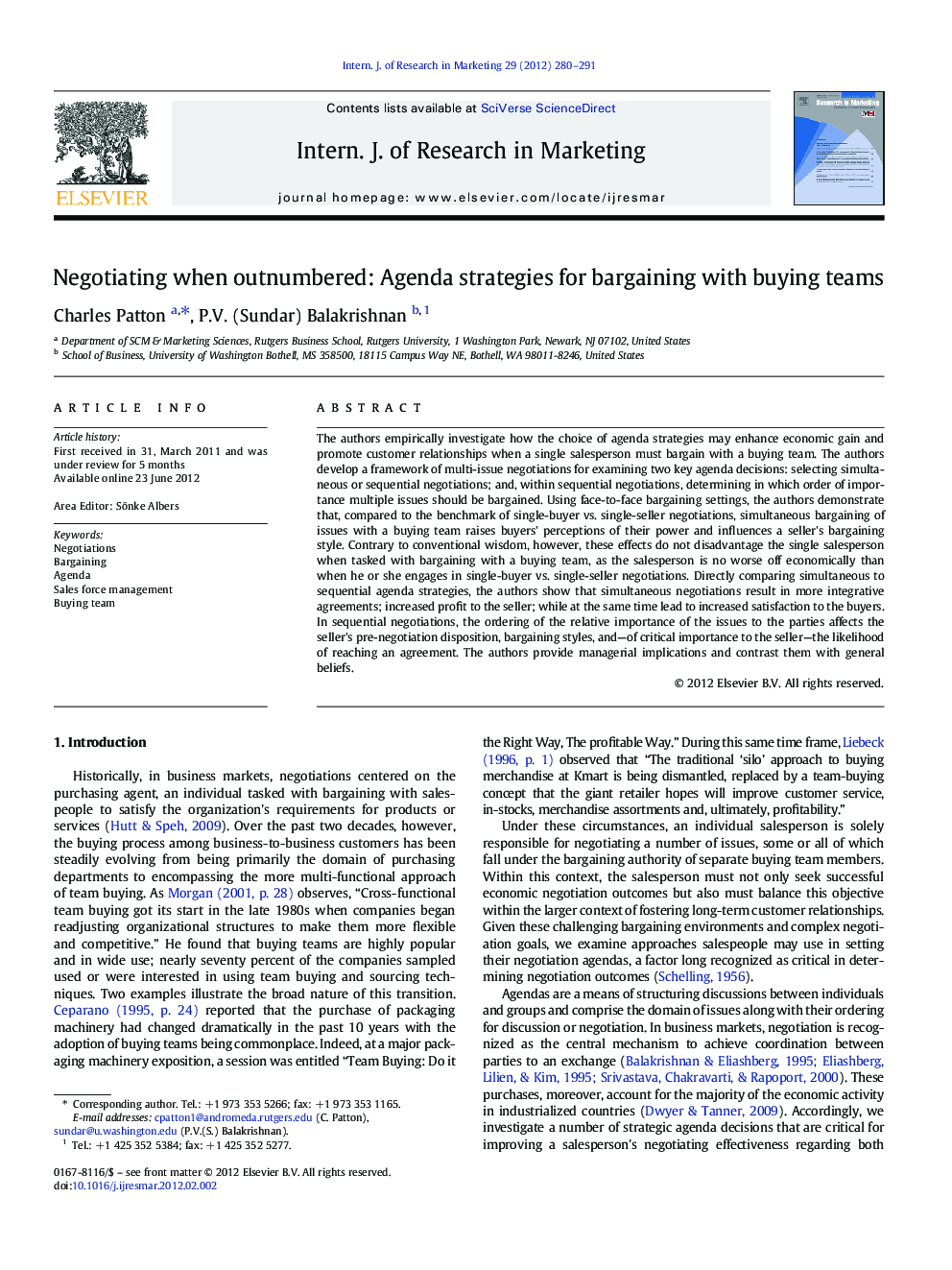| Article ID | Journal | Published Year | Pages | File Type |
|---|---|---|---|---|
| 880261 | International Journal of Research in Marketing | 2012 | 12 Pages |
The authors empirically investigate how the choice of agenda strategies may enhance economic gain and promote customer relationships when a single salesperson must bargain with a buying team. The authors develop a framework of multi-issue negotiations for examining two key agenda decisions: selecting simultaneous or sequential negotiations; and, within sequential negotiations, determining in which order of importance multiple issues should be bargained. Using face-to-face bargaining settings, the authors demonstrate that, compared to the benchmark of single-buyer vs. single-seller negotiations, simultaneous bargaining of issues with a buying team raises buyers' perceptions of their power and influences a seller's bargaining style. Contrary to conventional wisdom, however, these effects do not disadvantage the single salesperson when tasked with bargaining with a buying team, as the salesperson is no worse off economically than when he or she engages in single-buyer vs. single-seller negotiations. Directly comparing simultaneous to sequential agenda strategies, the authors show that simultaneous negotiations result in more integrative agreements; increased profit to the seller; while at the same time lead to increased satisfaction to the buyers. In sequential negotiations, the ordering of the relative importance of the issues to the parties affects the seller's pre-negotiation disposition, bargaining styles, and—of critical importance to the seller—the likelihood of reaching an agreement. The authors provide managerial implications and contrast them with general beliefs.
► We examine agenda strategies for a single salesperson bargaining with a buying team. ► We explore simultaneous vs. sequential negotiations; and issue order. ► Differences in pre-negotiation dispositions and bargaining styles impact outcomes. ► Simultaneous negotiations result in increased seller's profit and buyers' satisfaction. ► In sequential negotiations, issue order affects the likelihood of an agreement.
